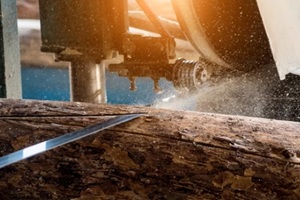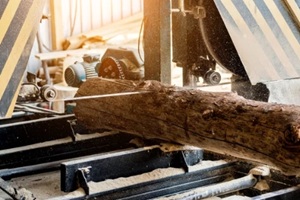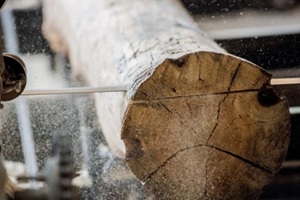
Sawmills have an essential role in the timber and construction industries, but they are also full of risks that can threaten operations, finances, and worker safety. From heavy equipment accidents to fire hazards and business interruptions, the exposures in this industry are significant.
As a sawmill owner or operator, having the right insurance coverage is necessary to protect your assets and ensure your sawmill operates smoothly, even when the unexpected happens.
Choosing sawmill insurance coverage is not a one-size-fits-all decision. The best policies are customized to the specific needs of your operation.
We’ve compiled a list of core insurance policies every sawmill business should consider.
General Liability Insurance
General liability insurance is the foundation of most business insurance programs. It helps protect the sawmill from financial loss due to third-party claims involving:
- Bodily injury (such as a visitor slipping on the premises)
- Property damage (including damage caused to a client’s truck or equipment)
- Legal defense costs
This coverage is imperative even for sawmills that do not host regular visitors. Accidents can still happen, and lawsuits can be costly.
The Insurance Information Institute highlights general liability as a must-have for any business interacting with the public or other companies.
Commercial Property Insurance
Sawmills rely on expensive facilities, tools, and machinery to operate efficiently. A fire, storm, vandalism, or equipment malfunction could bring operations to a halt.
Commercial property insurance helps protect:
- The mill building and outbuildings
- Processing and cutting equipment
- Stored lumber and inventory
- Office contents and computers
Many insurers can customize your coverage around the value of your property and machinery. This Investopedia article on commercial property insurance further explains why businesses need this coverage to protect their tangible assets.
Equipment Breakdown Insurance
Sawmills rely heavily on high-powered equipment, including conveyors, saws, kilns, and motors. If this equipment breaks down due to mechanical or electrical failure, repairs can be expensive, and the downtime even more costly.
Equipment breakdown insurance (also called “boiler and machinery coverage”) helps cover the cost of:

- Repairs or replacement of damaged machinery
- Lost income during downtime
- Emergency service calls
This coverage is especially valuable in sawmills where production relies on specialized or custom-built machines.
Workers’ Compensation Insurance
Employees in the lumber and milling industries work in one of the most strenuous and dangerous environments. Injuries from saws, forklifts, or repetitive strain can lead to serious claims.
Workers’ compensation insurance is legally required in Virginia and helps cover:
- Medical expenses for injured workers
- Lost wages during recovery
- Disability and rehabilitation services
- Employer liability for workplace injuries
Beyond compliance, this coverage shows your employees that their well-being matters. It also protects your business from lawsuits related to jobsite injuries.
The U.S. Department of Labor provides a helpful overview of how workers’ comp benefits both employers and workers.
Business Interruption Insurance
If a fire, storm, equipment breakdown, or other covered event temporarily shuts down your sawmill, business interruption insurance helps replace lost income. It can also help cover:
- Rent or lease payments
- Employee wages
- Loan payments
- Temporary relocation expenses
This coverage is indispensable in lumber processing, where downtime can lead to missed contracts and lost customers.
The National Association of Insurance Commissioners explains how business interruption coverage fills an essential gap during extended closures.
Commercial Auto Insurance
If your sawmill uses trucks to haul logs, deliver lumber, or move equipment between locations, commercial auto insurance is a must. It provides coverage for:
- Accidents that involve company vehicles
- Damage to third-party vehicles or property
- Injuries to other drivers
- Repairs to your own vehicles
Make sure to disclose how your vehicles are used and whether employees drive them offsite.
Inland Marine Insurance
Inland marine insurance covers mobile equipment and materials that are transported or used offsite. For sawmills, this could include:
- Log loaders and mobile saws
- Tools used at forest harvesting sites
- Lumber in transit to customers or storage facilities
It fills the gap left by commercial property and auto policies, which often exclude certain items once they leave your business premises.
Work With an Experienced Insurance Partner

With so many moving parts, sawmill operations require comprehensive insurance coverage. But more than that, they need an experienced insurance partner who understands the distinct risks of the lumber industry.
At Burton & Company, we help sawmills in Virginia build custom insurance plans that protect their property, employees, equipment, and reputation. Our team works closely with business owners to evaluate exposures, identify cost-effective coverage, and find the right carriers for the job.
If your sawmill is growing, or if you haven’t reviewed your coverage in a while, contact Burton & Company today. Visit us to speak with an agent who knows your industry and is ready to help.

